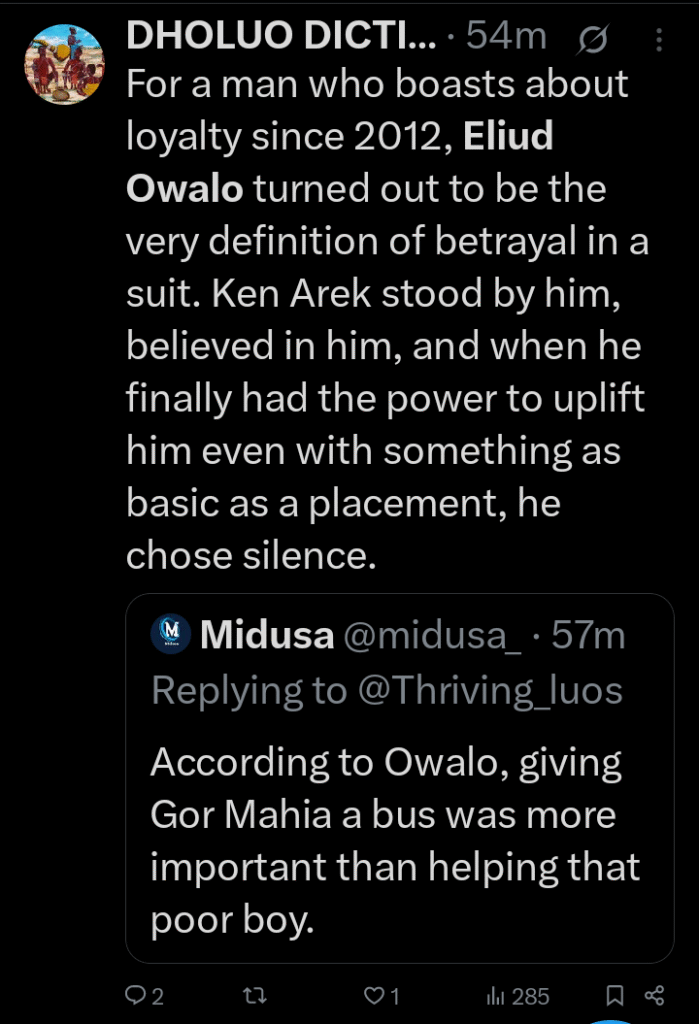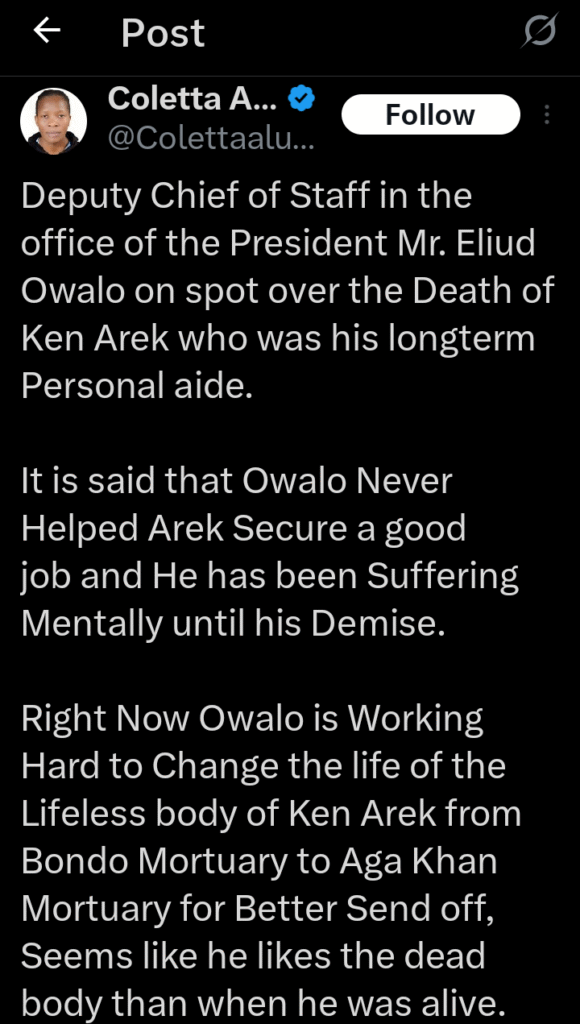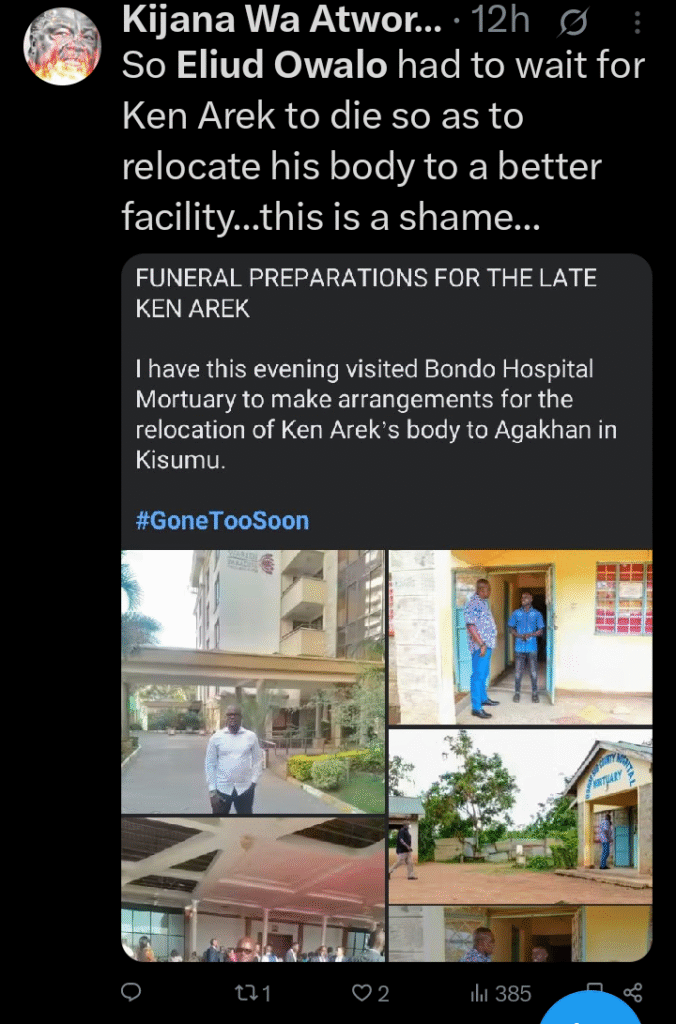According to reports making rounds on different social media handles, Deputy Chief of Staff in the office of the President, Mr. Eliud Owalo, is now under heavy criticism over the death of his long-time personal aide, Ken Arek.
The story has taken a disturbing turn, with many accusing Owalo of hypocrisy and neglect, as it emerges that Ken Arek may have died after a long period of mental suffering—allegedly without any meaningful support from the very man he loyally worked for.
Despite working closely with Owalo for years, it is said that Ken never secured a proper job, nor did he receive the kind of assistance expected from someone as powerful and connected as Owalo.

The late Arek is described by those who knew him as a committed aide, but one who continued to struggle under the weight of poverty and mental health issues until his untimely death.
People are now asking hard questions, why didn’t Owalo, a man known for his donations to football clubs and publicity-driven philanthropy, take care of the people close to him?
What is more troubling to many is what has followed after Ken Arek’s death. Owalo, who allegedly did little to improve Ken’s life while he was alive, is now going out of his way to shift his body from Bondo Mortuary to the more expensive Aga Khan Mortuary in Kisumu.

Critics say this act is not kindness, it is an insult. The sentiment online is that Owalo seems to value Arek more in death than in life. His gestures after the death appear to be for optics, not genuine care.

It is being said online that he has gifted his loyal aide not with a decent life, but with a “decent mortuary.” A chilling phrase that has started making rounds is that Owalo is now giving his bloggers a better send-off, not better jobs.
Social media users have not held back. Many are calling this nothing more than a public relations stunt, a sad attempt to wash away the guilt of neglecting someone who stood by him.

While Owalo has been seen donating millions and even buying a bus for Gor Mahia, the youth around him still struggle, with some like Ken Arek dying without ever experiencing the success that they hoped would come from their association with power.
It is a damning reflection of the kind of leadership where those in power would rather look good in public than do the right thing in private.
One painful irony is now circulating online in sarcastic tones: “Congratulations Eliud, may God continue opening doors of opportunities for you so our youths can get a befitting send-off.”
These words, while sounding like praise, are actually a biting reminder that many young people working around such leaders only receive attention when they are no longer breathing.

The public is demanding answers. Why did Ken Arek suffer for so long? Why did help come too late? And more importantly, how many more loyal aides are quietly suffering in the shadows of politicians who pretend to care?
As it stands, Eliud Owalo’s image as a generous man is being torn apart, not by political enemies, but by the voices of regular citizens who feel betrayed. The tragedy of Ken Arek is now a symbol of how power can sometimes forget loyalty, and how public acts of generosity can hide private acts of neglect.





















Add Comment